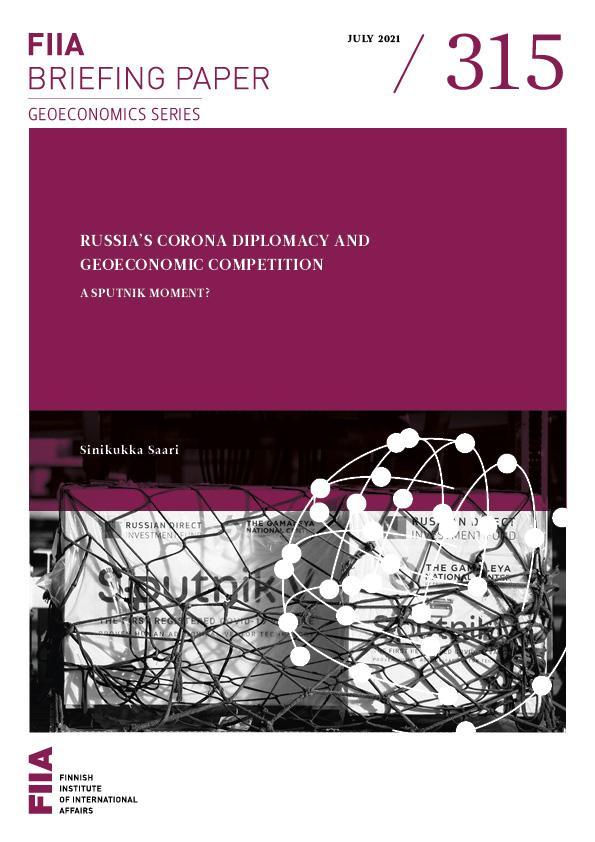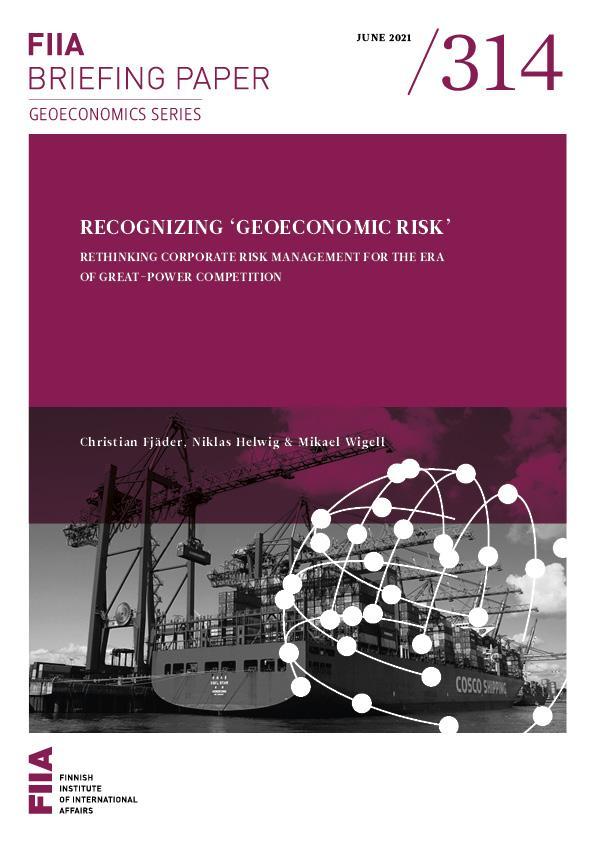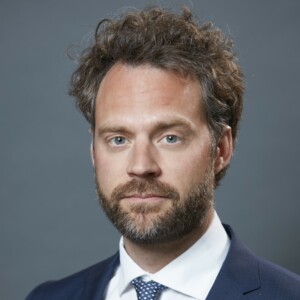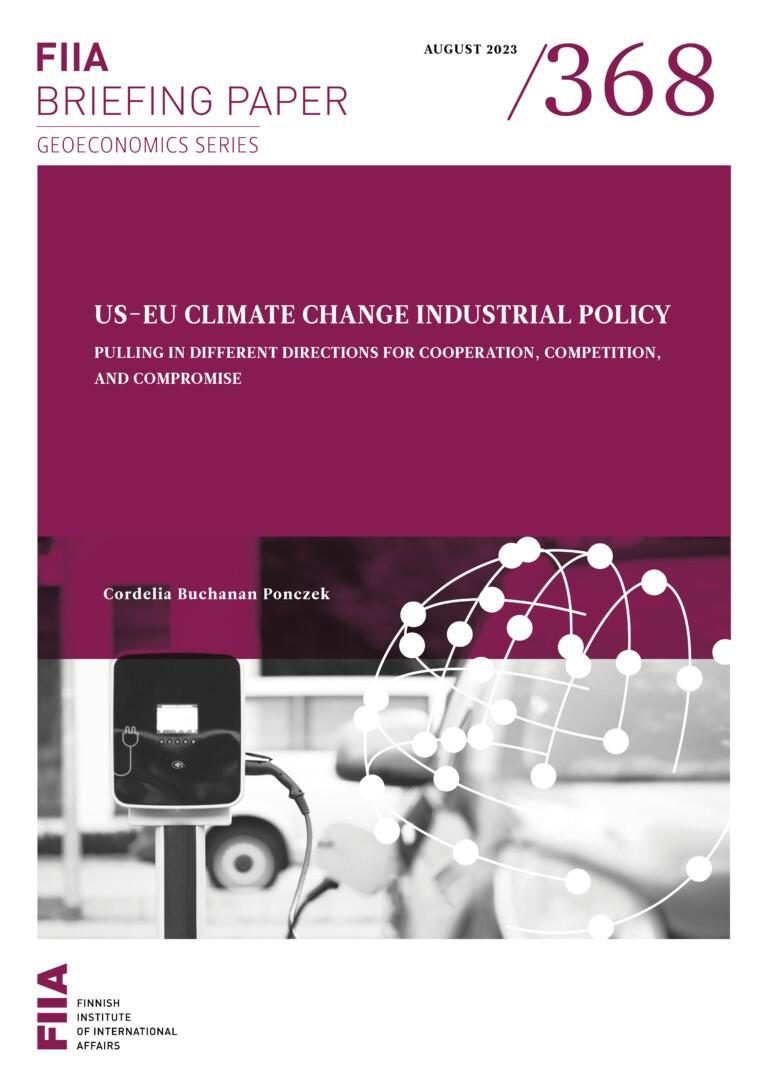The Russian science, technology and innovation (STI) system is geared towards global geoeconomic competitiveness and is based on three S’s: state control, sovereignty and self-sufficiency.
State-sponsored biotechnological innovation is a component in Russia’s geoeconomic strategy: in the case of Sputnik V, Russia’s commercial and strategic objectives are intertwined.
The Russian state’s close involvement in development, marketing and propagating Sputnik V – as well as its readiness to skip standard practices in order to make headway with the product – create well-founded distrust towards it in Western markets.
In the emerging and developing markets, Sputnik V suffers from insufficient manufacturing capacity. In many countries, only a fraction of promised doses have been delivered, and setting up local manufacturing capacity outside the EAEU takes time.
The European states should pay more attention to linkages between Russian innovation policies and its foreign, security and military policies. For Russia, these are not separate silos but build upon and support each other.
Introduction
If there is one indisputable fact, it is Russia’s will to win. Renaming the ‘Gam-COVID-Vac’ viral vector vaccine – which was the first in the world to be registered – ‘Sputnik V’ highlights Russia’s desire to be seen as a global leader in technology, like it once was with the world’s first satellite sent into space in 1957. For Russia, winning the global Covid-19 vaccine race seemed to be an end in itself – and not only a means of fighting the raging pandemic.
The development and roll-out of Sputnik V not only reflects Russia’s technological capability, but also the country’s understanding of global competition and the links between technological competition and Russian foreign and security policy. This Briefing Paper uses Sputnik V as an illustrative case study of Russian geoeconomic competitiveness and the way in which this influences Russian foreign policy and public diplomacy today. Geoeconomics denotes the use of economic and technological means to achieve strategic objectives. Both Russia and China have spearheaded a global trend of an increasing convergence between economic and security thinking.[1]
This Briefing Paper firstly sheds light on the basic tenets of Russia’s STI system, which was recalibrated around Putin’s return to the presidency in 2012. It also considers how the Russian biotech industry and vaccine development reflect those tenets more concretely. The second half of the paper tracks how Russia has attempted to take advantage of the global corona crisis in its foreign policy. What kind of a role has Sputnik V played in it and how effective a foreign policy tool has Sputnik V been so far?
Russia’s revised STI system
Russia’s current science, technology and innovation system (STI) draws boldly on the country’s dirigiste traditions. While the dominance of the state was once considered a drawback, today’s policy sees it as Russia’s relative advantage compared to its Western competitors. The course was adjusted in 2012 when Putin returned to the presidency with renewed determination to assert Russia’s geopolitical and geoeconomic power globally. The system relies on top-down planning and initiatives as well as state-generated investment.[2]
Part and parcel of this reformulated STI strategy are the three S’s: state-control, sovereignty and self-sufficiency. The commercial and strategic goals are closely intertwined – often even in the case of private companies as they typically have very close informal relations with state representatives. While economic profitability is naturally a goal for technological innovation, it is not the only criterion against which potential success is evaluated. Other aspects include enhancement of Russia’s national security and key foreign policy interests – such as the advancement of the country’s great-power status or cementing its channels of influence in strategically important states.
Russia’s STI system focuses on select fields where it has a comparative advantage, and which are linked to its national security and economic sovereignty. For example, in the energy industry, Russia has primarily concentrated on hydrocarbon and nuclear industries where it is already leading the race, rather than on exploring the potential of new renewable energy sources. Apart from energy, Russia has focused for the most part on the military, space and IT industries – all of which are considered highly strategic realms. Russia has also selected several cutting-edge fields where it seeks to compete globally, such as artificial intelligence and nano- and biotechnology.[3]

Russia has had some success in creating an ‘innovation brand’ that supports its geoeconomic might and foreign policy goals. Nuclear power plants, oil and gas pipelines, and military procurements all create long-term dependencies on Russia. On the other hand, expertise in cyber and space help intelligence gathering, and are more broadly sine qua non for the military industry. Cyber also provides an affordable coercive tool that is actively in use in Russia’s foreign policy.
The other side of the ‘sovereignty’ coin is self-sufficiency – namely, decreasing Russia’s dependency on other powers in strategic sectors. Self-sufficiency in strategic sectors and import substitution were major goals in the planning documents even before rifts with the US and the European Union (EU) deepened as a result of Russia’s illegal annexation of Crimea and war in Donbas. After 2014, Western sanctions and decreasing foreign investments in Russia further highlighted the need to encourage domestic investment and import substitution.
Putin has often made the point that Western sanctions have in fact contributed positively to Russia’s ‘economic and technical sovereignty’, and hence to its overall economic success. This should be taken as rhetoric, not as a fact. Despite being a political priority, significant import substitution has turned out to be very difficult in high-tech fields. In many fields, the goal has in practice been downgraded to ‘localization’ – that is, replacing the import of foreign products with the locally manufactured products of foreign firms. Furthermore, in recent years, Russia’s high-tech dependency on China has been growing.[4]
Target-setting for biotech
In the field of biotechnology, the policy goals were set in the ‘Comprehensive development programme in biotechnology in the Russian Federation up to 2020’, approved in 2012. According to the programme, in eight years Russia was set to become one of the global leaders in the development of biotechnology – including in ‘certain fields of biomedicine’. In fact, biotechnology was set to function – along with nano- and information technology – as the very ‘basis of modernization and building a post-industrial economy’ in Russia.
The Russian state was ready to generously support even risky biotech development because it was estimated that in the event of success, Russia could, in fact, reach one of the ‘leading positions’ in the world.[5] Reflecting this, Russian companies in the field – such as Biocad, which manufactures Sputnik V, for example – have been actively looking for a way into Western markets in recent years.[6]
Hence, the success of creating Sputnik V quickly in 2020 was the culmination of systematic efforts by the Russian political and STI authorities since 2012. Viral vector vaccines, such as Sputnik V, use innovative technologies (although they are often overshadowed in the media by the even more pioneering mRNA technology), and have been used in widely approved vaccines only twice before the Covid-19 pandemic – namely in Ebola vaccines by Johnson & Johnson and by Merck.
Despite its post-Soviet dependency on foreign vaccines, Russia has a decades-old industrial base for vaccine production and a handful of top laboratories – some of which have traditionally been closely linked with the national military complex. Many of these laboratories have close links to the military as they were used for bioweapon research and antidote development during the Soviet era – such as the VECTOR laboratory in the Novosibirsk region, which developed the second Russian Covid-19 vaccine, EpiVacCorona. In some cases the links still exist: In August 2020 the US first blacklisted the 48th Research Institute of the Russian Ministry of Defence – which was involved in Sputnik V development – and then in March 2021, after Navalny’s imprisonment in Moscow, imposed sanctions on the institute, citing its involvement in chemical and biological weapons research.[7]
Despite the biotech emphasis of Russian STI investment, there had not been any track record of Russian vaccines meeting export-level quality standards before Sputnik V. The Gamaleya Institute did develop an Ebola viral vector vaccine in 2017 and a MERS vaccine in 2018, but failed to get any international publications or licence for those. Although it lost the vaccine race that time, it gave the institute a flying start with the development of Sputnik V in 2020.[8]
Sputnik V – a national project
Perhaps the experience with the Russian Ebola and MERS vaccines earlier stregthened Russia's determinationto be the first in the global Covid vaccine race. This time, the Russian authorities were willing to bend the common scientific and ethical rules in order to be the first in the world to register the vaccine. The first two Russian vaccines both entered the market before completing the phase 3 trials: Sputnik V was approved in August 2020 but the phase 3 tests were only completed in February 2021. There have also been ethical concerns about Russia's data-collection methods, and doubt has been cast on the voluntary nature of some of the testing participants, such as conscripts.[9]
The Covid vaccine development was funded by the Russian Direct Investment Fund and was carried out in several Russian laboratories at the same time. Many of the competing laboratories also collaborated – for instance, the head of the US-sanctioned 48th Research Institute of the Ministry of Defence was among the authors of an article in The Lancet on the efficiency of Sputnik V along with Gamaleya scientists. The Gamaleya Institute is affiliated with the Russian Ministry of Health, which also happens to be the national body that approves and registers the vaccines in Russia.
Given the close links between vaccine development and the authorities, it is only natural that Sputnik V is considered to be first and foremost a Russian vaccine, not a ‘Medgamal’ (production branch of the Gamaleya Institute) product. This link is further highlighted by the fact that Russian state-controlled media outlets and the social media machinery are fiercely defending Sputnik V and spreading disinformation about foreign vaccines.[10] For instance, when Slovakia complained about quality problems regarding the Sputnik V vaccines that it had received, Russian investment fund representatives, responsible for marketing Sputnik V abroad, branded the complaints ‘fake news’ and an ‘act of sabotage’.[11]
Close links to the Russian state are both a blessing and a curse for Russian products seeking to expand to foreign markets. On the one hand, the government programmes and strategic investment make the innovation work easier in many sectors. They also enable the prioritization of certain key projects and allocation of resources to these projects possible – as was the case with the Covid-19 vaccine. On the other hand, the state’s embrace can be so tight that it becomes suffocating. The fact that the Russian vaccine is characterized by such a strong national victory ethos reflects negatively on the marketing in many countries. Paradoxically, the Russian authorities’ eagerness to debunk any criticism towards Sputnik V generates mistrust in foreign – and most likely also in domestic – audiences.

Russia has tried to bolster its image abroad through ‘corona diplomacy’. During the early months of the pandemic, Russia focused on providing aid deliveries in a highly visible manner to dozens of countries around the world. After August and the registration of Sputnik V, Russia engaged in global vaccine diplomacy that – even if accompanied by national victory and anti-Western propaganda discourse – was nevertheless based more or less on market logic.
‘Corona diplomacy’ in action
Russian foreign policy is known for its agility and opportunism. It is typically quick to seize the opportunities that arise, and to take advantage of them to promote its foreign policy goals. The coronavirus crisis is no exception: in March when the pandemic hit Europe – and particularly Italy – hard, Russia wasted no time in staging a full-on PR operation in Italy. It was reported that within 24 hours of President Putin’s phone conversation with then-Italian Prime Minister Giuseppe Conte, Russia sent military transport planeloads of aid – military doctors, nurses, disinfection units, ventilators, and masks – to Bergamo in a widely publicized attempt to contrast its massive aid with the inaction of the European Union and EU countries. The deliveries were marked with huge “From Russia with love” stickers, and Russian TV channels reported that Italians were singing the Russian national anthem in gratitude on their balconies during the lockdown. There was a clear performative twist in the operation, with some observers noting, for instance, that instead of delivering the cargo to the closest airport, Russian trucks drove 600 kilometres across Italy. The Russian military seemed to want to impress the public and the media at home and abroad with a long Russian convoy of military vehicles across a NATO state.[12]
At the start of the crisis, Russia made some attempts to directly gain from the pandemic politically, for instance by proposing at the UN General Assembly – together with China and several other likeminded states – that international sanctions should be eased in the face of the crisis.[13] The Western states were not convinced by the Russian argumentation; the EU rejected the call by pointing out that health matters are not covered by the sanctions regime, and hence there was no linkage between the issues.
The “From Russia with love” operation was followed by aid deliveries such as Covid tests and respirators to dozens of other states around the world: for instance, Moldova, Serbia and Bosnia Herzegovina in Europe; North Korea, Mongolia and India in Asia; Iran, Syria and Lebanon in the Middle East; Algeria, Congo, Guinea and Djibouti in Africa; and Venezuela in Latin America. During the early days of the pandemic, Russia even succeeded in sending assistance to the US with the blessing of and praise from President Trump. The European states that received most Russian assistance were typically countries that are internally divided in their approach towards Russia. In these countries it was perhaps hoped that sympathies towards Russia would deepen through the visible assistance operation. Elsewhere, the operation was more of a common public diplomacy effort intended to strengthen good relations between Russia and these states.[14]
Russia's allies in Eurasian Economic Union (EAEU) and Collective Security Treaty Organization (CSTO) – such as Belarus, Kazakhstan, Armenia and Kyrgyzstan – received some financial and medical aid from Russia. In particular, citizens of Central Asian states were hit hard due to Covid restrictions and travel bans by Russia, which in practice meant that the economic opportunities for labour migrants dried up. Many post-Soviet countries expressed some disappointment with Russia’s assistance, as it was less than expected and slow to materialize. Furthermore, Russia was by no means the only state offering assistance to post-Soviet states; aid also arrived from China, South Korea, the EU, and the United Arab Emirates, for example.[15]
The Russian corona diplomacy changed gears after the registration of Sputnik V. In August 2020, it concentrated on marketing the vaccine globally and closing deals swiftly with basically any willing government across the globe.
(Almost) cashing out on Sputnik V
Since the latter half of 2020, Russia, along with China, has been actively engaged in vaccine diplomacy around the globe. The primary markets for Sputnik V and Sinovac are not in well-to-do European countries, but rather in low- and middle-income countries around the world.
The slow progress of Western countries’ Covax vaccine assistance programme has created opportunities for China and Russia. “Who would have known that in the middle of this cruel pandemic […], the only vaccines we’d receive are Russian and Chinese?”, wondered Argentinian Vice President Cristina Fernández de Kirchner, for instance, in March 2021. Only recently has the US prioritized vaccine aid to Latin America – which happened after it was widely reported that China was pressuring Honduras to change its recognition policy towards Taiwan in return for Covid vaccine doses.[16]
However, despite wide publicity and press coverage on the deals closed across the globe, Russia’s share of delivered vaccines to Latin America is very small and pales in comparison with the Chinese deliveries. As of early May 2021, Russia had delivered only 8.7 million doses to Latin American states, whereas China’s share was 75.8 million doses. Although Venezuela and Russia have made much ado about their solidarity in the face of the pandemic, Venezuela has received only 380,000 of the promised 10 million vaccines and Venezuela has managed to vaccinate only 1% of its population (as of early May 2021).[17]
It thus seems that the main hurdle for the export success of Sputnik V is not the missing approvals from the European Medical Agency and corresponding bodies in the US and the UK, but the fact that Russia is unable to manufacture vaccines on a scale that could serve international demand. Russia already has orders for hundreds of millions of doses, but lacks the manufacturing capacity to scale up production for international contracts. Given this, Moscow has sought to make deals on the foreign production of Sputnik V. The challenge here is that vaccine manufacturing takes time to set up – especially when there is no prior experience in this type of collaboration between Russia and most foreign countries.[18]
The figures suggest that, for now, Russian vaccine diplomacy may be more about performative public diplomacy emphasizing Russian national might and technological abilities, and less about actually curbing the pandemic effectively with a significant quantity of vaccine deliveries. Yet while Sputnik V is the first widely known Russian export biotech product, it is unlikely to be the last. In this respect, Russia could be paving the way for future export markets for Russian biomedical products. As the national programme on biotech laid out, Russia is set to do what it takes to get to a leading position globally in biotech, and Sputnik V is only the first step on this road.
Conclusion
The Sputnik V case illustrates the key tenets of Russia’s STI strategy: state-control, sovereignty, and self-sufficiency. Biotechnology is considered strategically important for Russia’s self-sufficiency and sovereignty, as well as its military capability. The link between the biopharmaceutical industry and biological and chemical weapon development is hard to deny.
Corona diplomacy overall, and Sputnik V in particular, has served Russian foreign policy aims even without any concrete policy concessions from other countries. It emphasized Russia’s growing influence globally, and its re-found technological edge, as well as highlighted the perceived inefficiency of the EU and the Western states’ lack of solidarity towards each other and the rest of the world. The Russian media and disinformation campaign propagated these messages relentlessly and repeatedly.
Sputnik V is a major national achievement: it is the first export product developed in post-Soviet Russia that is widely known abroad. Although it has received much public attention and media coverage, Russia has failed to deliver the doses promised due to limited manufacturing capabilities in Russia and a lack of prior international production contracts. Even if its practical significance remains limited when compared to China’s vaccine deliveries globally, Russia’s vaccine diplomacy has enhanced Russia’s status and promoted its foreign policy narrative about its greatness, and the morally corrupt and internally divided West.
Although to date at least, Sputnik V has not been such a success story that Russia would seek to propagate it internationally, it still demonstrates what Russia is aiming at. Almost certainly, this won’t be the last time that Russia tries to use its innovation capability as a geoeconomic tool to shape the international environment. European states should pay more attention to close linkages between Russian innovation policies and its foreign, security and military policies. In Russia, these are not separate silos, but rather build on and support each other.
Endnotes
[1] Mikael Wigell, Sören Scholvin and Mika Aaltola (eds.), Geo-economics and Power Politics in the 21st Century: The Revival of Economic Statecraft (London: Routledge, 2018).
[2] Irina G. Dezhina, ‘Science and Innovation Policy of the Russian Government: A variety of instruments with uncertain outcomes’, Public Administration Issues, 2017, https://cyberleninka.ru/article/n/science-and-innovation-policy-of-the-russian-government-a-variety-of-instruments-with-uncertain-outcomes/viewer.
[3] See the Russian strategies on Energy (June 2020), on Development of Innovation (December 2011) and on Scientific and Technological Development (December 2016); Energeticheskaya strategiya Rossiiskoi Federatsii na period do 2035 goda, http://static.government.ru/media/files/w4sigFOiDjGVDYT4IgsApssm6mZRb7wx.pdf; Strategiya innovatsionnogo razvitiya Rossiiskoi Federatsii na period do 2020 goda, http://static.government.ru/media/files/4qRZEpm161xctpb156a3ibUMjILtn9oA.pdf; Strategiya nauchno-tehnologicheskogo razvitiya Rossiiskoi Federatsii, http://static.government.ru/media/acts/files/0001201612010007.pdf.
[4] On Putin’s claims, see e.g., Holly Ellyatt, 'Russia has always had ‘great respect’ for the US, Putin says', CNBC, 20 November 2019, https://www.cnbc.com/2019/11/20/us-sanctions-on-russia-have-helped-russias-economy-putin-says.html; on Russia’s growing tech dependency on China, see Anastasia Muravyeva, Vasily Lemutov, ‘How Chinese Tech Companies Are Conquering Russia’, Carnegie Endowment for International Peace, 11 January 2021, https://carnegie.ru/commentary/83589.
[5] Kompleksnaya programma razvitiya biotehnologiy v Rossiyskoy Federatsii na period do 2020 goda. http://www.bio-economy.ru/upload/bio_2020_programme.pdf, p. 13.
[6] ‘Russian biotechnology company Biocad announced plans to enter the EU market’, EurekAlert, 7 November 2019, https://www.eurekalert.org/pub_releases/2019-11/b-rbc110719.php; Outi Salovaara, ‘Tehdas jumissa’, Suomen Kuvalehti, 21 January 2021, https://suomenkuvalehti.fi/jutut/kotimaa/talous/venajan-koronarokotetta-valmistavan-biocadin-piti-perustaa-tehdas-turkuun-hanke-jumissa-kaupungin-yhtion-johto-syyttaa-fimeaa/?shared=1152367-ddc84754-4 .
[7] Mike Eckel, ‘The US blacklists entities for chemical and biological weapon research’, RFR/RL, 27 August 2020, https://www.rferl.org/a/us-blacklists-russian-entities-for-chemical-biological-weapon-research/30805564.html; ‘The U.S. Sanctions and Other Measures Imposed on Russia in Response to Russia’s Use of Chemical Weapons’, 2 March 2021, US Department of State, https://www.state.gov/u-s-sanctions-and-other-measures-imposed-on-russia-in-response-to-russias-use-of-chemical-weapons/.
[8] Joshua Yaffa, ‘The Sputnik V vaccine and Russia’s race to immunity’, The New Yorker, 1 February 2021, https://www.newyorker.com/magazine/2021/02/08/the-sputnik-v-vaccine-and-russias-race-to-immunity.
[9] Christian Esch, Jens Glüsing, Christina Hebel, ‘The Surprising Success of Sputnik V’, Spiegel, 30 March 2021, https://www.spiegel.de/international/world/vaccine-diplomacy-the-surprising-success-of-sputnik-v-a-62e54cb2-3d76-4e1a-933b-9912e7c94e48.
[10] Mark Scott and Carlo Martuscelli, ‘Meet Sputnik V, Russia’s trash-talking coronavirus vaccine’, 1 April 2021, Politico, https://www.politico.eu/article/russia-coronavirus-vaccine-disinformation-sputnik/.
[11] ‘Russia calls on Slovakia to return Sputnik V doses after dispute’, Reuters, 8 April 2021, https://www.reuters.com/article/us-health-coronavirus-slovakia-sputnik-idUSKBN2BV2GP.
[12] Maksym Skrypchenko, ‘How Russia is influencing the EU and NATO during the pandemic’, The New Eastern Europe, 9 April 2020, https://neweasterneurope.eu/2020/04/09/how-russia-is-influencing-the-eu-and-nato-during-the-pandemic/; George Spencer Terry & Andrey Makarychev, ‘Performative Diplomacy and Popular Geopolitics: The Case of Russian Anti-COVID Assistance to Italy’, Problems of Post-Communism, 23 March 2021, p. 3.
[13] Text available at https://digitallibrary.un.org/record/3856500.
[14] Agnieszka Legucka, ‘Russia’s Corona Diplomacy: Evaluation and Prospects’, PISM Bulletin, 4 August 2020, https://pism.pl/publications/Russias_Coronadiplomacy_Evaluation_and_Prospects; Terry and Makarychev 2021.
[15] Paul Stronski, ‘There goes the neighbourhood: the limits of Russian integration in Eurasia’, Carnegie Endowment for International Peace, 16 September 2020, p. 16, https://carnegieendowment.org/files/202009-Stronski_-_Russia_Eurasia.pdf 3.
[16] The quote, see: ‘CFK dijo que “no tenemos plata” para pagar la deuda con el FMI y pidió “un gestito” a EE.UU’, Hoy Rojas, 24 March 2021, https://hoyrojas.com.ar/index1.php?que=noticias&id=21069; on the US’s vaccine assistance recalibration, see Michael Stott, Kathryn Hille and Demetri Sevastopulo, ‘US to send vaccines to Latin America after Taiwan ally warns pivot to China’, The Financial Times, 19 May 2021, https://www.ft.com/content/c0717932-0d88-4cea-b55c-ff561ed1f70e.
[17] Michael Stott, Bryan Harris, Michael Pooler, Gideon Long, Benedict Mander, Jude Webber, ‘Chinese jabs dominate Latin America vaccination campaigns’, The Financial Times, 9 May 2021, https://www.ft.com/content/511d3cee-b388-4eb5-a667-e693349ad564; Vanessa Silva and Gideon Long, ‘Maduro struggles to make good on his grand vaccine promises’, The Financial Times, 2 May 2021, https://www.ft.com/content/8312275e-a726-4639-ba1c-8a4f1e95cf93.
[18] There are already agreements to start production at least in India, South Korea, Brazil, Serbia, Turkey, Italy, as well as Belarus and Kazakhstan. Huizhong Wu and Daria Litvinova, ‘Russia turns to China to make Sputnik shots to meet demand’, AP, 3 May 2021, https://apnews.com/article/middle-east-europe-russia-china-coronavirus-b041b3ad9d699de25a05c8f7ebcb4eb9.









